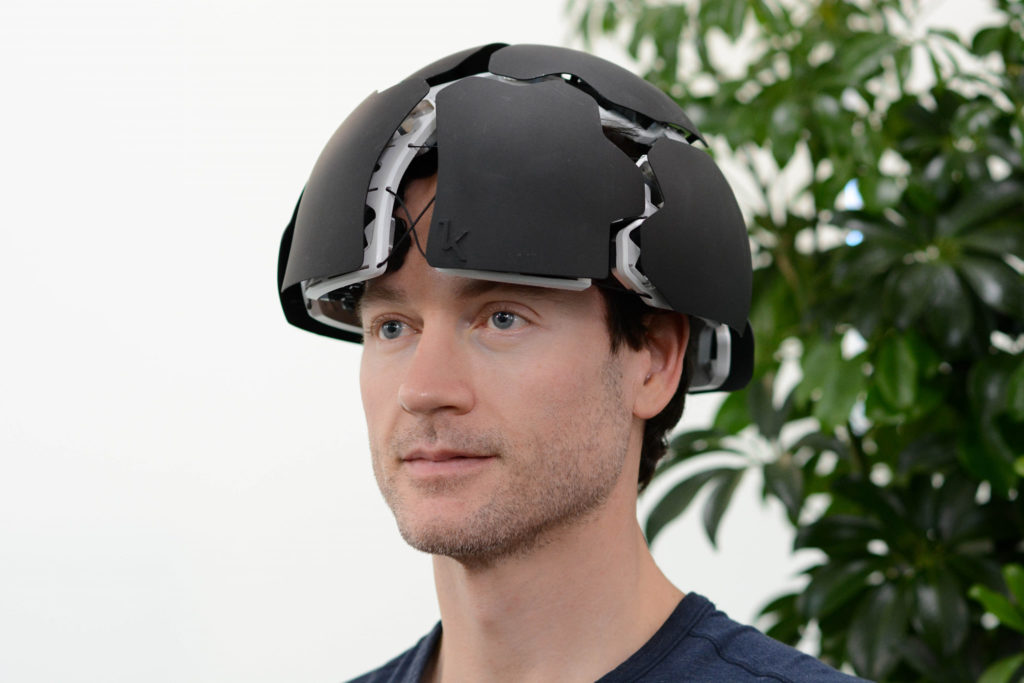Neural tech company Kernel has developed a $50K brain-tracking helmet. Years in the making, orders will soon be fulfilled.
What it is: Kernel aims to make non-invasive brain recording technology widely accessible. To that end, the company developed two sensor-packed helmets, known as Flux and Flow, capable of analyzing the brain in real time.
- Flux detects magnetic fields generated by collective neural activity (magnetic flux).
- Flow detects cortical hemodynamics, representative of neural activity (blood flow).
Why it’s interesting: From steps to sleep and heart rate to blood glucose, we use countless gadgets to quantify our health. Decoding the brain, Kernel hopes to add its mind-reading helmet to the list.
Kernel founder and CEO Bryan Johnson said, by 2030, the cost of his company’s tech will compare to that of a smartphone, making it possible for every American household to own a brain-sensing helmet.
Prior to Kernel, Johnson founded payments platform Braintree. In 2013, he sold the company to PayPal for $800M. In 2015, Johnson started Kernel. Early on, some 200+ investors passed, leading him to invest $50M of his own money. Last year, General Catalyst led a $53M funding round.
From aging to mental health and high performance, Johnson views Kernel as a great unlock, adding: “To make progress on all the fronts that we need to as a society, we have to bring the brain online.”
The big picture: A trend we detailed in Issue No. 123, Connected Mindfulness, the brain + body connection is poised for a high-tech breakthrough.
- Brain health disorders account for $3T of lost productivity every year.
- The global brain-computer interface market could reach $3.7B by 2027.
- The global neurotechnology market is expected to cross $19B by 2026.
As Kernel scales its non-invasive helmet technology, the idea of implanted brain-computer interfaces, à la Elon Musk’s Neuralink, doesn’t seem all that far-fetched.






